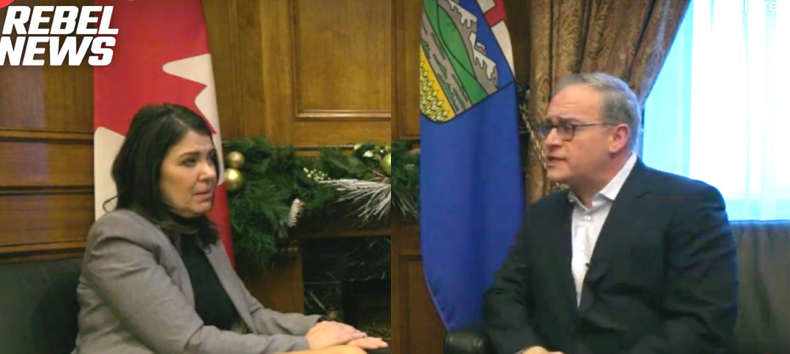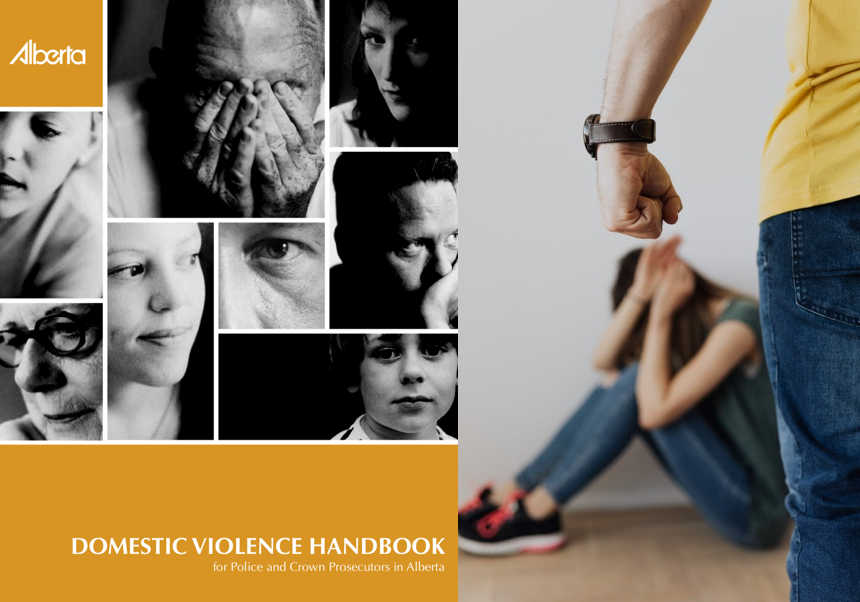Alberta Premier Danielle Smith is in lukewarm water again. The attacks come from the usual suspects: the opposition NDP, their allies in the federally-subsidized mainstream media – including Canada’s state-funded broadcaster – and activist academics. It’s uncertain how many regular citizens still mistake that cadre of leftists for serious or insightful critics. Still, they remain capable of inflicting serious political damage and throwing a generally well-meaning government off-track.
The issue this time is Smith’s alleged, or threatened, “interference with prosecutorial independence,” specifically as it relates to legal charges against Albertans who refused to comply with or who vigorously protested government-imposed Covid-19 measures. They include pastors who kept on giving Sunday services and restaurant owners who stayed open because their livelihoods depended on it. Although there were many resulting charges, few actually alleged violations of the Criminal Code, with most being for possible breaches of provincial public health orders. The majority, then, concern civil disobedience rather than violence or property destruction (which are more typical of leftist political agitation).
The problem is that Smith’s critics – and as we shall see, the Premier herself – do not have a good grasp of the concept of prosecutorial independence, nor of how it has been applied in Canada in recent times.
During her successful UCP leadership campaign last year, Smith repeatedly promised to pursue “pardons” for those charged or fined for violating public health orders. And while she dropped that promise based on “legal advice” after becoming premier, Smith now stands accused of interfering with prosecutorial independence by a recent CBC report that alleges her staff “sent a series of emails” to Crown prosecutors attempting to influence specific cases arising from the Coutts border crossing blockade last year.
Prosecutorial independence is a wonderful principle to uphold. This makes it a tempting cudgel with which to beat one’s opponents over the head, if the concerns can be made to stick. The problem is that Smith’s critics – and as we shall see, the Premier herself – do not have a good grasp of the concept of prosecutorial independence, nor of how it has been applied in Canada in recent times.
The usual suspects are upset: Alberta Premier Danielle Smith is under attack from the CBC and its familiar coalition of opposition politicians and left-wing academics over claims she improperly contacted Crown prosecutors regarding the Coutts border crossing protest last year.
A review of the concept and recent precedent actually suggests the contrary view: Smith has not gone far enough to promote an amnesty for those who resisted mandates, an amnesty that in turn would be aimed at achieving what might be termed a “lockdown reconciliation” with those whom Smith once characterized as “the most discriminated-against group that I’ve ever witnessed in my lifetime.”
What is Prosecutorial Independence?
Modern representative democracy has three distinct branches: the legislative, the executive and the judicial. The people’s representatives in the legislature pass laws (statutes). The Governor-in-Council (or Presidential Administration, depending on the country) – i.e., the cabinet – creates subordinate regulations where authorized and administers the statutes through the creation and management of a bureaucracy. And the judicial branch interprets the laws and adjudicates disputes when executive action is challenged for being contrary to the statutes or constitution.
That is, the role of the judicial branch is to oversee the implementation of the duly-enacted laws by keeping the legislative and executive branches in their lanes. This requires the legal system to have a certain kind and degree of independence from the executive and legislative branches. Specifying the “kind and degree” of independence required for the judicial branch to properly function is beyond this discussion.

Importantly, the executive branch appoints and hires everyone in the judicial branch – a practice dubiously deemed not to compromise the latter’s independence. A superior model derives from labour arbitration, where litigants choose their own lawyers and their lawyers then agree on who will adjudicate the case. It would be a massive undertaking to convert our legal system into the arbitration model. It is mentioned only to draw attention to the gaping politicization of the judicial branch inherent in the existing selection process, to counter those who think that any political “thumbing of the scales of justice” would taint an inherently pristine system. It isn’t one.
The judicial branch is unfortunately labelled, since judges are its smaller half. The larger half are lawyers who conduct litigation on behalf of the Crown, i.e., the state. Government lawyers represent the people through the office of the Attorney General (AG) federally and the Solicitor General (SG) provincially. In Alberta, these lawyers belong to the Alberta Crown Prosecution Service (ACPS); the federal counterpart is the Public Prosecution Service of Canada (PPSC). Government lawyers do more than prosecute criminal and regulatory offences; many are involved in defending the Crown in civil claims.
The issue at hand is whether anything Smith has done or contemplated doing is of such a kind or degree as to undermine the independence of the ACPS.
Mandates vs. Rights, Government vs. Citizens
During the recent viral outbreak, governments at all levels enacted laws or invoked emergency provisions in existing laws that authorized the issuance of orders through the Chief Medical Officers of Health. In Alberta, this included fencing erected by police around churches to prevent worshippers from attending. Sacred services such as funerals, weddings and baptisms were drastically curtailed or cancelled altogether. So was access to schools, parks and playgrounds. Many people lost their jobs or were publicly ostracized as a result of extreme lockdown measures and their reactions to it.

All this abrogated the rights and liberties of citizens and organizations in innumerable ways in both the common law and the Canadian Charter of Rights and Freedoms. It is important to appreciate that emergency public health orders do not override Charter protections just because they are labelled “emergency” or “public health.” Such orders may be challenged for non-compliance with the Charter. Many challenges were made, but governments were exceedingly slow to respond, causing even greater resistance.
Charter rights are not absolute, of course; they may be abrogated when doing so is “demonstrably justified” to achieve a higher public good. If the existence of a genuine medical emergency is established, then the likelihood increases that public health orders can be demonstrably justified when they abrogate Charter rights in ways that clearly aid public-health objectives. Governments are still constitutionally required to demonstrate the necessity of their actions in court when challenged. They should not get a pass simply by uttering the magical incantations “because emergency” and “because science.” That way lies tyranny. But in hearing these challenges, many of Canada’s lower courts, especially earlier in the pandemic, showed enormous deference to the government/public health position while appearing to trivialize the concerns or hardships endured by the challengers.
Suffice it to say that it was not crazy to question the legitimacy of many, most, or all of the specific public health orders issued during Covid-19. There is no scale for objectively weighing conflicting interests and rights. Nor is there a supreme authority issuing unquestionable pronouncements in medical science, economics, child development and learning, and so on. (Science is rarely settled – virology and epidemiology are two particularly unsettled fields – and questioning “the science” is how science itself is largely done.)

Nor is it obvious that the ephemeral and unmeasurable benefits alleged to flow from many of the public health orders “demonstrably justified” the wholesale abrogation of fundamental Charter rights, especially given the serious and demonstrable harms the mandates and lockdowns caused. Democratic protest and civil disobedience were understandable; the contempt with which governments, media, academia and the courts treated the associated concerns made them inevitable.
I Beg Your Pardon?
Danielle Smith entered this maelstrom in 2022 as a candidate for the United Conservative Party (UCP) leadership. On the campaign trail, she promised supporters she would look for ways to end what she regarded as (and were) frivolous prosecutions of mandate non-compliers and lockdown protesters. The former high-profile talk-show host and journalist perhaps ill-advisedly used the term “pardon” – an ambiguous expression easily misconstrued by those influenced by American politics.
There is more than one path to a pardon in Canada. Legislatures have the power to undo past mistakes by commuting sentences, forgiving convictions and wiping slates clean.
In the United States, presidents and state governors have the absolute power to issue pardons to anyone they wish, without judicial or legislative oversight. In Canada, the power to issue free pardons resides not in elected officials but in the King and his direct representatives: the Governor General in Ottawa and the Lieutenant Governor in each province.
The royal prerogative to issue free pardons has only been used once in Canada. In 2010, the Lieutenant Governor of Nova Scotia, acting on the advice of the Premier, pardoned Viola Desmond, who had been convicted of evading a provincial theatre tax in 1946. The case provides dubious precedent for Smith to obtain free pardons for Alberta’s non-violent public health order offenders. The opposition was quick to characterize her “pardon” remark as a gaffe, and the accusation stuck.

But there is more than one path to a pardon in Canada. Legislatures have the power to undo past mistakes by commuting sentences, forgiving convictions and wiping slates clean. This can be done by cabinet via an order-in-council. Such was the case recently in Saskatchewan when Premier Scott Moe pardoned dozens of individuals accused of traffic law violations – including his own brother. (To be fair, Saskatchewan’s government states that Moe recused himself from the deliberations concerning his brother.) Alternatively, specific legislation can be passed to facilitate the process. After marijuana use was legalized in 2018, activists pressured the federal government to pardon all those convicted for simple possession of cannabis prior to its legalization, and in 2020 Parliament did so. An administrative process was set up whereby applicants could obtain a pardon by providing appropriate documentation to the bureaucracy. If the applicant was found eligible, the pardon was granted automatically by the bureaucracy, without further legal obstacles.
Smith or any other sympathetic Canadian premier could easily take the same approach – both retroactively and proactively – for non-violent breaches of all or selected public health orders during the pandemic. And with greater moral and substantive justification than in the examples above. It seems, however, that partisans have memory-holed these clear avenues of amnesty and reconciliation because they do not have a taste for the particular forgiveness being contemplated. It is time for Smith’s staff and cabinet colleagues to be reminded of this option.

Interfering with Prosecutors – Or Not?
Recently, when pressed on her promise to do something to help those discriminated against by mandates and lockdowns, Smith stated that she speaks with Crown prosecutors “on a regular basis, as new cases come out,” asking them, “Is it in the public interest to pursue and is there a reasonable likelihood of conviction?” These are two long-established principles that prosecutors are supposed to apply in every case to determine whether or not to proceed. There is surely no harm in reminding prosecutors of them.
The problem this time was that it is not the Premier’s role to be doing the advising; such advice is supposed to come from the SG. Smith subsequently corrected herself by saying that she had not spoken directly with prosecutors; presumably she meant to say that her message was delivered via the SG. But as earlier with the “pardon” gaffe, she was left wrong-footed and now appears defensive, vulnerable, and less enthusiastic about seeking redress for the lockdown-injured.
Smith’s critics certainly acted as though they smelled blood. There quickly followed the previously mentioned “news” story from the CBC alleging the existence of emails between Smith’s staff and the ACPS concerning the Coutts border blockade cases. The provincial NDP then dutifully called for an investigation. Yet the CBC’s story curiously failed to quote from such e-mails, raising suspicions that they might not exist. The federally-funded broadcaster later admitted it had never even seen them. Smith subsequently ordered an investigation, and after a reported search of 1 million emails covering a four-month span between every staffer and every Crown prosecutor nothing was found. It seemed the CBC’s story, if not fake news, was outrageously shoddy. Smith has struck back, asking for a retraction and an apology from the CBC (which, at time of publication, was not forthcoming).

Yet Smith remains more tepid than many of her supporters had hoped about the whole “pardon” thing. Citing “our experience at the federal level,” she now intimates that her hands are tied. Presumably, she is alluding to the federal SNC-Lavalin prosecution, which the Prime Minister’s Office dearly wished to make go away in the second half of 2018. That was, indeed, an egregious case of political interference with the independent prosecution service.
But the SNC-Lavalin affair has limited relevance to the matter of helping mandate non-compliers and lockdown protesters. It stands for the proposition that politicians should not intervene in any way with the prosecution of individual cases. When it comes to providing general guidance on how to handle classes of cases, guidance from the government is not only permissible, it is precisely the AG or SG’s role. And, in turn, a provincial SG may of course take direction from the Premier in this regard.
Legitimate Guidance of the Judicial Branch by the Executive Branch
Precedent is often instructive and dispositive. The AG’s actions while the SNC-Lavalin scandal was developing is one such precedent. Jody Wilson-Raybould’s final act as AG was to issue a directive to the PPSC that included 20 separate “Guidelines” about how lawyers were to handle civil cases involving First Nations plaintiffs. It makes plain how detailed and directive the AG is legitimately allowed to be concerning handling classes of cases.

This document’s preface begins: “In my mandate letter from the Prime Minister, I was tasked as Attorney General of Canada to review the Government of Canada’s litigation strategy. I was mandated to make decisions to end appeals or positions inconsistent with the Government’s commitments, the Charter of Rights and Freedoms, and Canadian values.” The preface emphasizes shifts in litigation strategy to better reflect the Government’s new commitments and relationship with a class of citizens, including a “decisive break from the status quo.” The goal was to put old, antagonistic and unproductive practices aside to achieve reconciliation and mend hurts and harms.
It is hard to think of a better template for Smith’s project of reconciliation with the lockdown protesters and mandate refusers. Wilson-Raybould’s 20 Guidelines are not limited to broad or vague language about goals, principles and commitments. They include specific and detailed instructions. The Guidelines variously seek to minimize conflict, promote dialogue, aim for resolutions outside of court, avoid pursuing weak legal positions, make litigation and court processes last resorts, seek to resolve disputes quickly, cede legal ground to Indigenous claimants “as much as possible,” and avoid repetition of unsuccessful approaches. Each Guideline has the intent and effect of weakening the Crown’s hand in defending against claims upon the government.
When it comes to issuing directives to prosecutors, Solicitors General are not limited to the enforcement of provincial public health orders; they may also offer guidance on how prosecutors should handle related criminal charges.
Granted, Wilson-Raybould’s Guidelines concern civil litigation whereas Smith’s concern is with cases alleging regulatory or criminal offences. Language would of course have to be altered to craft Guidelines to fit the provincial circumstance. The distinction between civil and criminal law makes no difference in principle, however. The key point is that an AG or SG is allowed to be direct and intrusive in guiding how legal files are to be conducted by government lawyers, without falling afoul of the principle of prosecutorial independence. Wilson-Raybould was clearly, deliberately and proudly putting her thumb on the scale of justice for a large and important class of federal government cases. She was widely lauded by progressives for doing so. She has her critics, too, but they are concerned with the effects, not her right to do so.
As mentioned, a provincial legislature has the power to issue pardons only for offences that the legislature itself has created. It would be outside the legal scope or ultra vires for a provincial legislature to enact pardons for criminal offences, since the substance of the criminal law is a federal jurisdiction. While the content of the criminal law is a federal jurisdiction, however, the enforcement thereof is a provincial responsibility. So it is the SG who is responsible for the conduct of criminal prosecutions within the province.
It follows that when it comes to issuing directives to prosecutors, SGs are not limited to the enforcement of provincial public health orders; they may also offer guidance on how prosecutors should handle related criminal charges. Criminal charges that have been laid against mandate non-compliers and lockdown protesters include such non-violent offences as mischief, obstruction of justice, failure to comply and the like. It is a good question how far an SG may go in directing prosecutors to increase or reduce their efforts to secure convictions of those charged with such offences, without effectively countermanding the Criminal Code or crossing the line of prosecutorial independence.
Fortunately, there is a great precedent for this type of intervention, too, which provides all the latitude Smith requires.
A Provincial Precedent for Premier Smith
The Alberta precedent lies in the provincial Domestic Violence Handbook introduced almost two decades ago outlining how prosecutors are to handle charges related to this issue. Canada’s Criminal Code has no specific provisions covering domestic violence; the accused in this class of cases are charged with provisions such as assault, aggravated assault, assault with a weapon, harassment and the like. Specifically domestic violence offences are distinguished only by contextual markers such as marriage, cohabitation, divorce or separation. This is analogous to criminal charges laid in the context of mandate and lockdown resistance.

The 160-page Domestic Violence Handbook was introduced under the SG’s auspices to reflect the imperative – or zealotry – of “zero tolerance” regarding such cases. (The link above is to the 2014 update.) Every reference, illustration, cited case, and discussion involved a male perpetrator and a female victim. The pronoun “he” was chosen to identify the “perpetrator,” while “she” was chosen to identify the “victim.” It shunned the neutral legal terms “accused” and “complainant,” supporting its insistence that the female complainant should always be believed while the accused male should be presumed guilty. The handbook referenced as authorities only activists and academics with an explicit feminist perspective. And, of course, “zero tolerance” means in practice taking every case to trial, regardless of its merits – whether or not there is a reasonable prospect of conviction; whether or not it is in the public interest.
As a practising lawyer in Alberta at the time, as well as a peer-reviewed, published academic researcher in intimate partner violence, I have deep familiarity with the original handbook. I also participated in a Human Rights complaint against the Department of Justice over the handbook’s anti-male biases. I clearly recall cases where judges chastised prosecutors at the end of a trial for wasting the court’s time on a hopeless or trivial case premised on zero tolerance. My clients would sometimes order the transcript to evidence the judge’s frustration at the trial practices of Crown prosecutors pursuing unmeritorious cases.
In my opinion, Alberta’s Domestic Violence Handbook is a travesty of justice, with the express aim of increasing the conviction rate in this class of cases. Troublesome ancient principles like the presumption of innocence and proof beyond a reasonable doubt went unmentioned in its 160 pages. Yet its publication was celebrated in legal circles. The author won accolades and awards. This is how the law should be practised! This ideological and politically motivated intervention in the justice system was never criticized as an illegitimate interference with prosecutorial independence.
The UCP government could pass legislation that retroactively and prospectively pardoned and compensated the appropriate cases. Concurrently, a formal legal handbook containing a directive and guidelines could be issued to steer further prosecutions concerning pandemic cases.
The handbook thus demonstrates clearly that a province can craft extensive and detailed guidelines for prosecutors to follow regarding a class of cases and that such guidelines can strongly favour one side. Further, it is the government of the day that gets to decide in whose favour these rules are stacked. Such is the current state of judicial and prosecutorial independence in Canada that anything short of directly communicating with a judge or prosecutor on a particular case is considered acceptable.
A Path to Mandate Amnesty and Lockdown Reconciliation
Following ample recent precedent at both the federal and provincial levels, Smith faces no impediment to mandating her SG to vigorously pursue amnesty and reconciliation for mandate resisters and lockdown protesters. First, the UCP government could pass legislation that retroactively and prospectively pardoned and compensated the appropriate public health order cases. Concurrently, a formal legal handbook containing a directive and guidelines could be issued to steer further prosecutions concerning pandemic cases as a class, or similar issues of broad public concern in future.

Pursuing this course of action has the added benefit of being based on sound empirical evidence rather than panic-inducing false political narratives. A few examples to illustrate this point. To begin with, SARS-CoV-2 was never remotely as dangerous as the 1918 Spanish Flu, either in terms of its infection fatality rate or the number of years of life lost per fatality. In Alberta, as many children under 10 years old have died of the seasonal flu so far this winter alone as had died with Covid-19 in the past three years. Among this age group, the infection fatality rate for this season’s flu is ten times as great as for Covid-19.
Outdoor and asymptomatic transmission are exceedingly rare. Decades of research shows that typical masks have no efficacy in halting the transmission of respiratory viruses. The mRNA injections do not prevent transmission, either, something that has been known at least since late 2021, while their efficacy in reducing symptoms, hospitalization and fatalities wanes markedly. In addition, so-called “alternative” therapies – everything from non-prescription Vitamin D and zinc to off-label use of prescription medications – have shown promise.
In short, citizens who continued to think for themselves had ample evidence and logical reasons to decline to be beholden to the diktats of our public health overlords. And yet the often-ruthless enforcement of public health mandates did untold damage to millions of individuals, organizations such as churches, and small businesses, while the arrest, charging and prosecution of conscientious violators did more damage still.
Smith is well aware of all of this information, and much more. Early in the pandemic she regularly hosted guests on her talk-radio show who pointed much of this out. Collectively, these facts completely undercut the public health rationale for the mandates and lockdowns, which were never demonstrably justified. It is long past time to rectify the injustices they caused to many Albertans.
Madame Premier, the ball is back in your court.
Grant A. Brown has a doctorate from Oxford University and an LL.B. from the University of Alberta. He is retired from academia and the practise of law and lives in Edmonton.
Source of main image: The Canadian Press/Jason Franson.





